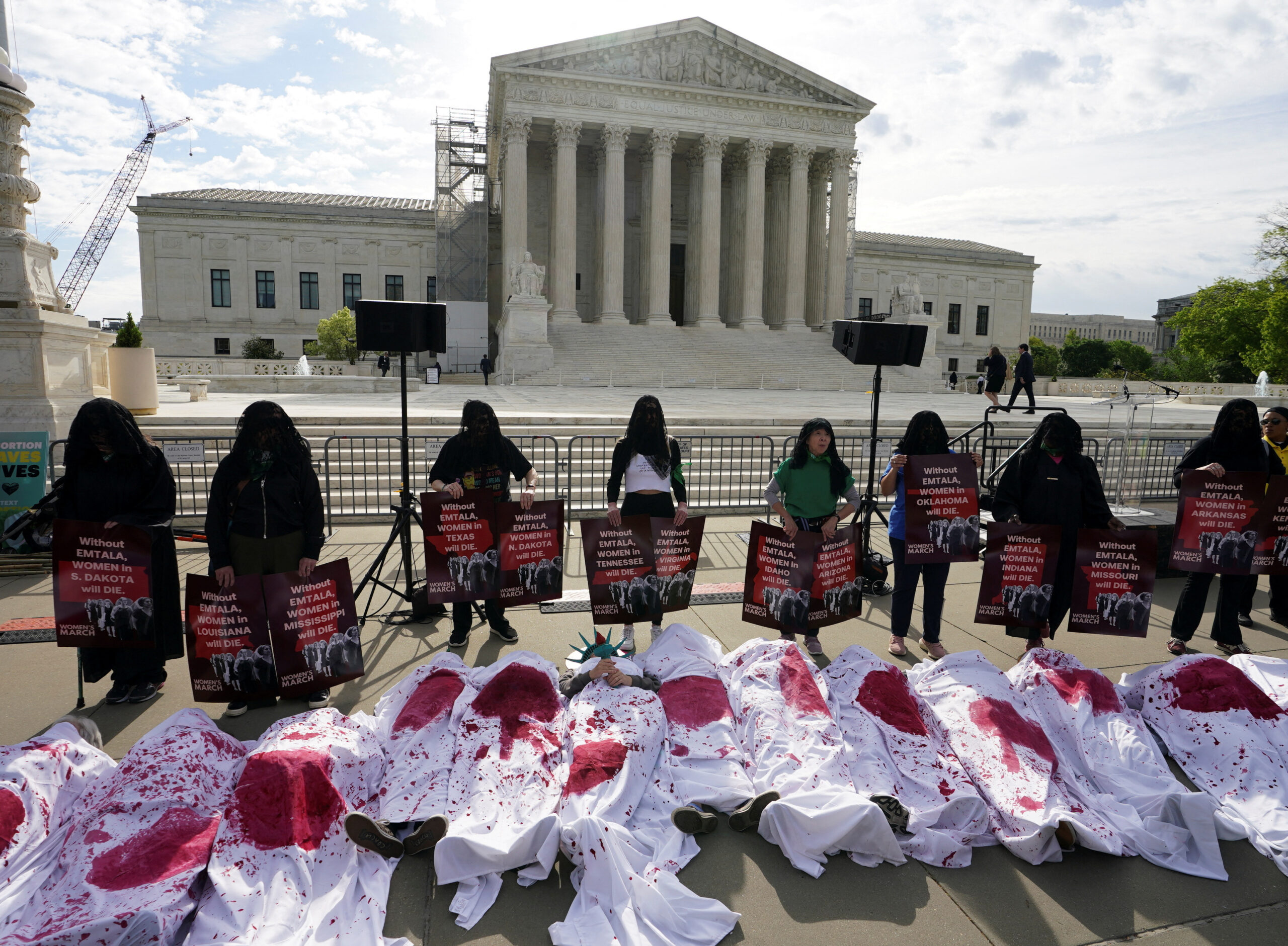The U.S. Supreme Court is once again delving into the contentious arena of abortion access as it grapples with arguments centering on Idaho’s stringent Republican-sponsored abortion ban versus a federal law safeguarding patients’ access to emergency medical care.
In the upcoming proceedings, the justices will weigh Idaho officials’ appeal following a lower court ruling that accorded precedence to the 1986 federal law in question, the Emergency Medical Treatment and Labor Act (EMTALA), over the state’s near-total abortion prohibition. The Biden administration has thrown its weight behind upholding this ruling.
This legal tussle has prompted the high court, with its 6-3 conservative majority, to revisit the legal framework established following the June 2022 decision overturning the landmark 1973 Roe v. Wade ruling, which devolved abortion regulation to individual states.
Among the seven states enacting near-total abortion bans in the past two years, Idaho stands out, implementing a law automatically triggered by Roe’s reversal in 2020. This law prohibits nearly all abortions except those necessary to avert a mother’s death, with severe penalties for medical practitioners found in violation.
Simultaneously, EMTALA mandates that hospitals receiving Medicare funding must “stabilize” patients facing emergency medical conditions. The crux of the matter lies in whether Idaho’s ban must yield to EMTALA when a physician deems abortion as the requisite “stabilizing care.”
Following Roe’s demise, the Biden administration issued federal guidance affirming EMTALA’s precedence over state abortion bans in case of conflict and initiated legal action against Idaho’s ban.
U.S. District Judge B. Lynn Winmill of Boise in 2022 halted the enforcement of Idaho’s law in cases where abortions are essential to avert serious health risks to women.
While allowing Idaho to enforce its law in January, the Supreme Court agreed to render a final verdict on its legality.
Idaho’s Republican attorney general and key state lawmakers contend in court filings that the state’s law and EMTALA are not inherently contradictory.
The Supreme Court’s decision is anticipated by the end of June.
This case is not the sole abortion-related matter awaiting the court’s judgment during this presidential election year. The justices are also poised to rule on a challenge by anti-abortion factions and medical professionals seeking to curtail access to the abortion pill mifepristone, a drug sanctioned by federal regulators in 2000.




